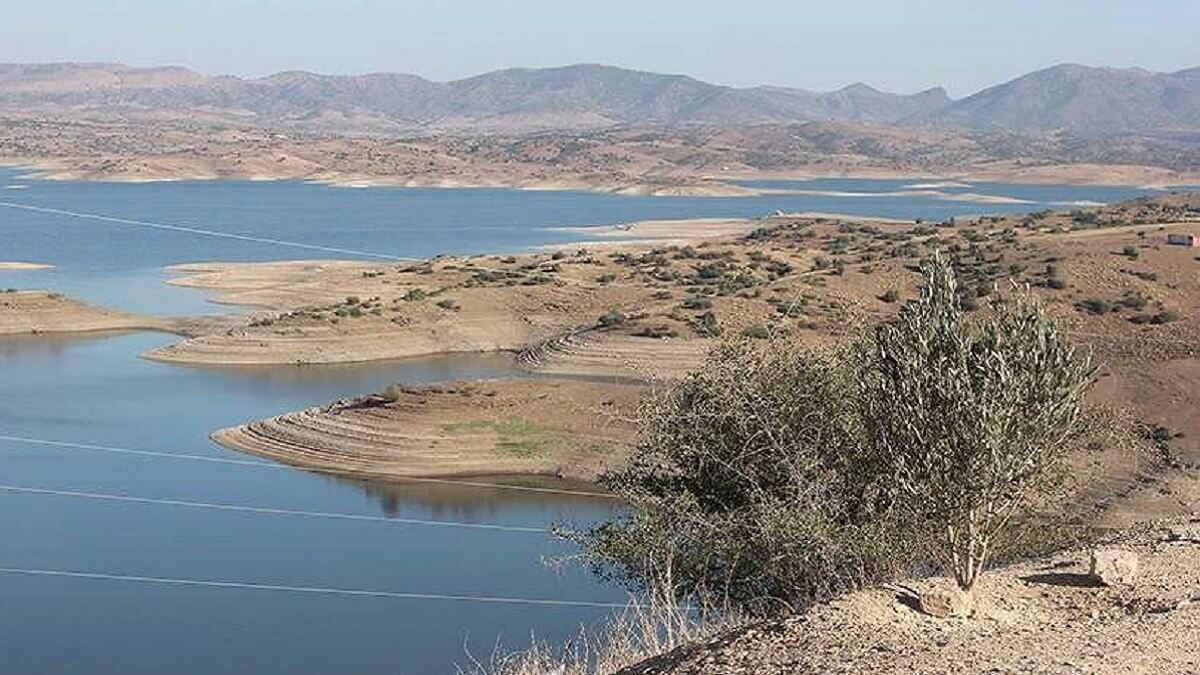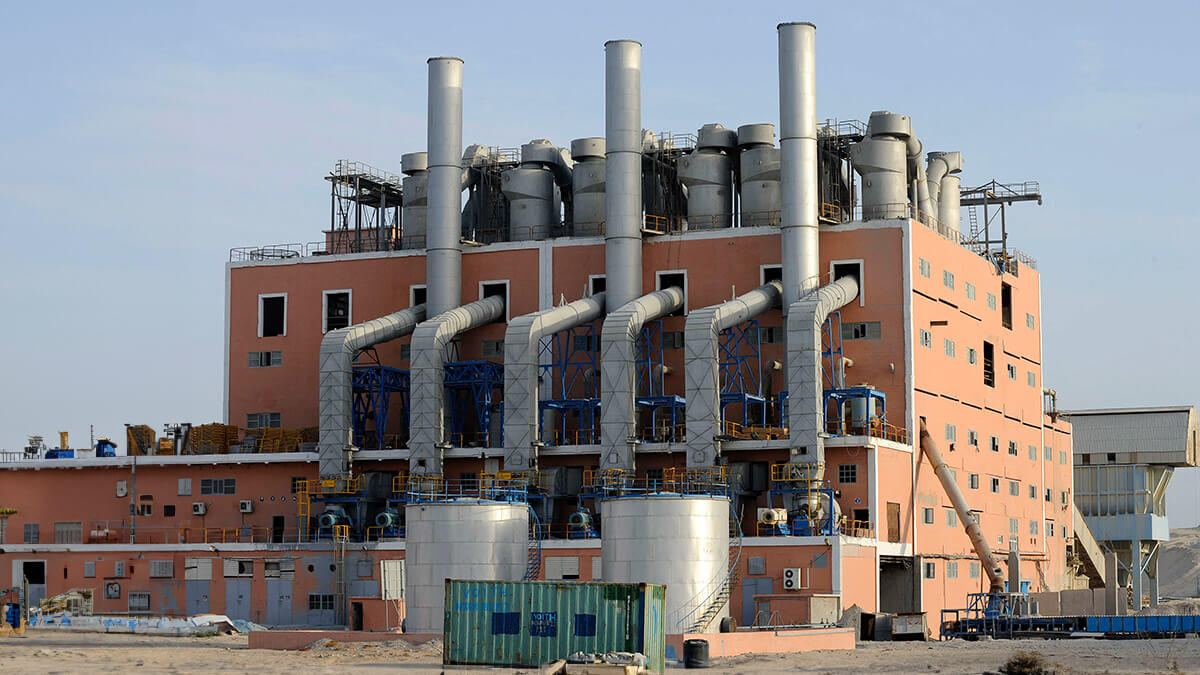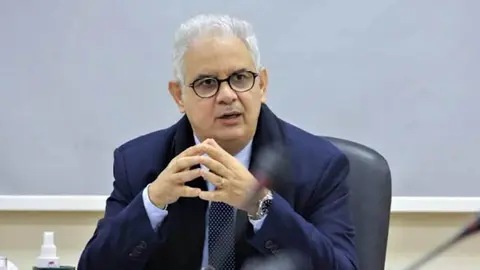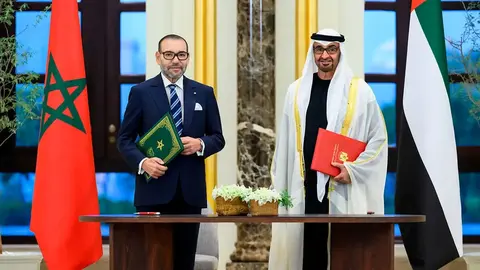OCP Green Water: the efficient response to the water emergency in Morocco

- A strategic player in the water transition
- Beyond the Moroccan phosphate industry
- State-of-the-art facilities in record time
- Integrated green energy and unconventional water model
Faced with chronic drought affecting Morocco, the government asked the OCP Group in 2022 to take charge of drinking water supply in several cities. Since then, OCP Green Water has been serving urban communities to address the water emergency.
Thanks to accelerated projects carried out by OGW and its partners, El Jadida and Safi have been progressively supplied with desalinated water since November 2023, reaching 100% in January 2024. While Casablanca reached 60 million cubic metres per year in December 2024, Marrakech, Benguerir and Youssoufia will be supplied in 2026 via pipelines connected to the Safi desalination plant.
A strategic player in the water transition
Created in 2022, OCP Green Water (OGW) is the OCP Group's subsidiary dedicated to the development, production and marketing of non-conventional water for industry, cities and agriculture. Its objective is to achieve and maintain water autonomy in all its industrial sites, thereby contributing to Morocco's water sovereignty. Its mission focuses on four strategic areas:
- Responding to the State's emergency request in 2022/2023 to supply drinking water to the cities of Safi, El Jadida, Casablanca South, Marrakech Yusufia and Benguerir.
- Guaranteeing water autonomy for OCP's mining and industrial sites.
- Supporting sustainable agriculture through the irrigation of high value-added crops with non-conventional water (research programmes in collaboration with UM6P, INNOVX and ARADINOV).
- Operating with a minimal carbon footprint, using only renewable energies.
With an installed capacity of 320 million cubic metres by the end of 2025 and an increase to 610 million cubic metres by 2027, OGW will support the development of the Group's new mining and industrial facilities, as well as the supply of drinking water to other cities in the country, particularly Marrakech.
Committed to sustainable development, OCP Green Water supplies all its systems with 100% green energy and aims to become a key player in the water transition in Morocco and Africa, placing science, technology, territories and communities at the heart of its solutions.

Beyond the Moroccan phosphate industry
In line with the OCP Group's strategy to ensure the water autonomy of its industrial and mining sites, this technology is based on the mobilisation of unconventional water using low-cost renewable energies in production processes.
The advances are driven by the OGW Group's technical units and supported by research programmes in the water and energy laboratories at the Mohammed VI Polytechnic University (UM6P).
This major infrastructure now makes it possible to transport desalinated water over 200 kilometres, from the Atlantic coast to the heart of Morocco's main phosphate basin. Its capacity not only supplies desalinated water to the world's largest phosphate mine, but also covers the drinking water needs of the city of Juribga.
At the same time, the OCP Group's operations at the Benguerir mine are becoming completely self-sufficient in water, thanks to the supply, since 15 June 2025, of treated wastewater from the Marrakech treatment plant.
The OCP Group's goal of becoming self-sufficient in unconventional water was achieved two years ahead of the 2027 deadline, thanks to a combination of desalination, wastewater treatment and water transfer projects.
Beyond its industrial vocation, the OGW project is crucial to consolidating the national effort to combat water stress, promoting a strategic convergence between industrial ambition, energy efficiency, innovation and social commitment.

State-of-the-art facilities in record time
Over 200 kilometres long, the J2K pipeline is fed by a new desalination plant built on the Jorf Lasfar platform, dedicated to supplying Juribga, enabling the transfer of up to 80 million cubic metres of desalinated water per year.
This is the first facility of its kind in Morocco to transport desalinated water over such a long distance. Built by a consortium of Moroccan companies selected following an international tender, significant technical challenges have been overcome and the project has been completed in a record time of 24 months.
Thanks to a strategic synergy between the expertise of OGW, JESA and the OCP Group, and with the support of UM6P, the project also aims to refine technical solutions and accelerate their implementation in the field.
In addition to its technical performance and R&D efforts, the project has generated significant economic and social benefits, with nearly one million working days, equivalent to an average of 1,300 jobs per day over two years. Eighty-five per cent of the workforce is local, in addition to 100 permanent jobs created following the facility's entry into service on 15 June.
Integrated green energy and unconventional water model
To guarantee the OCP Group's long-term unconventional water needs and ensure the long-term autonomy of its industrial and mining sites, OGW is committed to an integrated green energy model for the treatment, transport and use of unconventional water.
In this context, the OCP Group's water strategy is based on concern for the environment and the sustainable production of unconventional water using 100% renewable, competitive and sovereign energy.
This ambition has now become a reality, enabling the following objectives to be achieved:
- Desalinate seawater and treat wastewater with a low carbon footprint.
- Reduce operating costs, thereby ensuring the economic sustainability of the model.
- Offer a sovereign alternative to dependence on conventional resources, without additional costs for the group's mining and industrial activities.
In line with this integrated model, the next milestone will be the commissioning in 2026 of the Safi-Gantour (S2G) pipeline, which will link the new Safi desalination plant, currently under construction, with the new industrial and mining platforms in Mzinda, Benguerir and Louta, while also guaranteeing the supply of drinking water to the city of Benguerir.
The same applies to Marrakech and Yusufia, whose drinking water supply will come from the new OCP Green Water desalination plant in Safi via another pipeline linking Safi and Marrakech, currently under construction by SRM-MS.










